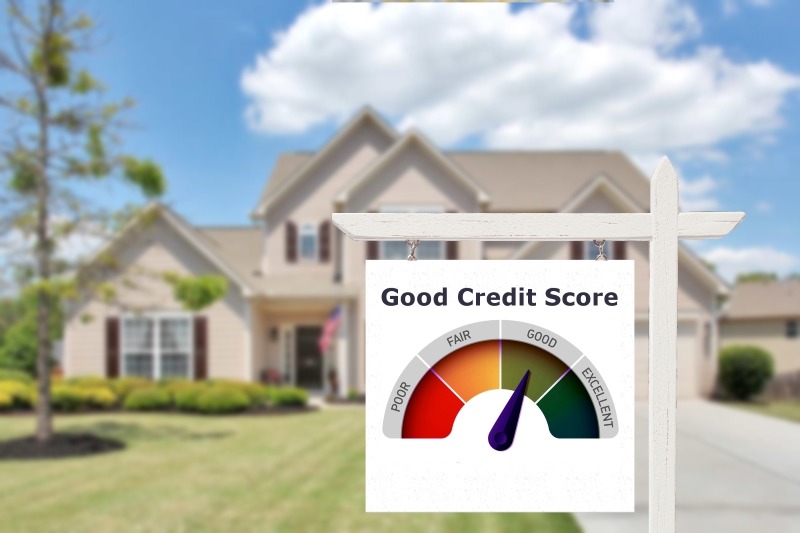Finance
What is a good credit score for renting a house?
Advertisement
Renting a house is a significant decision, and landlords often consider several factors before approving a tenant’s application. One of the key aspects that landlords assess is the applicant’s creditworthiness, typically indicated by their credit score. In this essay, we will explore what constitutes a good credit score for renting a house, why it matters, and how it can impact the rental process.

Understanding Credit Scores:
A credit score is a numerical representation of an individual’s creditworthiness, reflecting their history of managing financial obligations. Credit scores are typically provided by credit reporting agencies and can range from 300 to 850, depending on the scoring model used. Higher credit scores generally indicate a lower risk of defaulting on financial obligations.
You will be redirected to another website
By submitting this form, I agree that I am 18+ years old and I agree to the Privacy Policy and Terms and Conditions. I also provide my signature giving express consent to receive marketing communications via automated emails, SMS or MMS text messages and other forms of communication regarding financial products such as credit card and loans. Message frequency varies and represents our good faith effort to reach you regarding your inquiry. Message and data rates may apply. Text HELP for help or text STOP to cancel. I understand that my consent to receive communications is not a condition of purchase and I may revoke my consent at any time.
Importance of Credit Scores in the Rental Process:
Landlords often consider credit scores as part of their tenant screening process. A good credit score can provide landlords with confidence in a tenant’s ability to pay rent on time and fulfill their financial responsibilities. It serves as an indicator of financial stability and responsibility, giving landlords peace of mind when selecting tenants.
What Constitutes a Good Credit Score for Renting a House?
The specific credit score requirements for renting a house may vary among landlords and property management companies. However, a general guideline is that a credit score above 650 is often considered good for rental purposes. Scores in the range of 700 and above are typically viewed as excellent, while scores below 650 may raise concerns or require additional scrutiny.
Factors Influencing Credit Scores for Rental Approval:
a) Payment History: Timely payment of bills and debts, including previous rent payments, is crucial in maintaining a good credit score.
b) Outstanding Debts: The amount of debt owed, including credit cards, loans, and other financial obligations, can impact credit scores.
c) Credit Utilization: Keeping credit card balances low relative to the available credit limit is advisable.
d) Credit History: The length of an individual’s credit history and the presence of a diverse credit mix can positively impact credit scores.
e) Public Records: Bankruptcies, liens, and other negative public records can significantly lower credit scores.
Beyond Credit Scores: Additional Rental Considerations:
While credit scores play a significant role in the rental process, landlords may consider other factors in combination with credit scores. These factors can include income verification, employment history, rental references, and personal interviews. Landlords aim to assess the overall financial and personal stability of potential tenants.
Strategies for Renting with a Lower Credit Score:
a) Offer a Higher Security Deposit: Providing a larger security deposit can alleviate some concerns for landlords and demonstrate your commitment.
b) Obtain Co-Signers or Guarantors: Having someone with a strong credit history co-sign the lease or act as a guarantor can mitigate risks for landlords.
c) Provide Rental References: Presenting positive rental references from previous landlords who can vouch for your reliability and responsibility may help compensate for a lower credit score.
d) Explain Special Circumstances: If there are valid reasons for a lower credit score, such as medical emergencies or temporary setbacks, providing an explanation to the landlord can add context to the situation.

A good credit score significantly enhances the likelihood of securing a rental house. While credit score requirements may vary among landlords, aiming for a credit score above 650 is generally advisable. Additionally, it is essential to maintain a positive payment history, manage debts responsibly, and address any errors or discrepancies in credit reports. Demonstrating financial stability through a good credit score opens doors to a wider range of housing opportunities and helps landlords feel confident in their tenant selection.
Trending Topics

Premier Bankcard® Card: For bad score
Looking for a credit card to help you build your credit score? Discover the benefits of Premier Bankcard. Take control of your credit!
Keep Reading
Credible Personal Loans: Find the Best Loan!
Don't get lost in the world of personal loans! Our Credible review simplifies your search and helps you score a winning deal.
Keep ReadingYou may also like

OppLoans Personal Loan review: Up to $4,000!
Sail through financial uncertainty with OppLoans! Find out about quick funding, flexible terms, and transparent fees in our review.
Keep Reading
UNITY Visa® Secured Credit Card Review: Say Hello To Credit
A new and secure financial path with the UNITY Visa® Secured Credit Card. See what's essential when you apply!
Keep Reading
